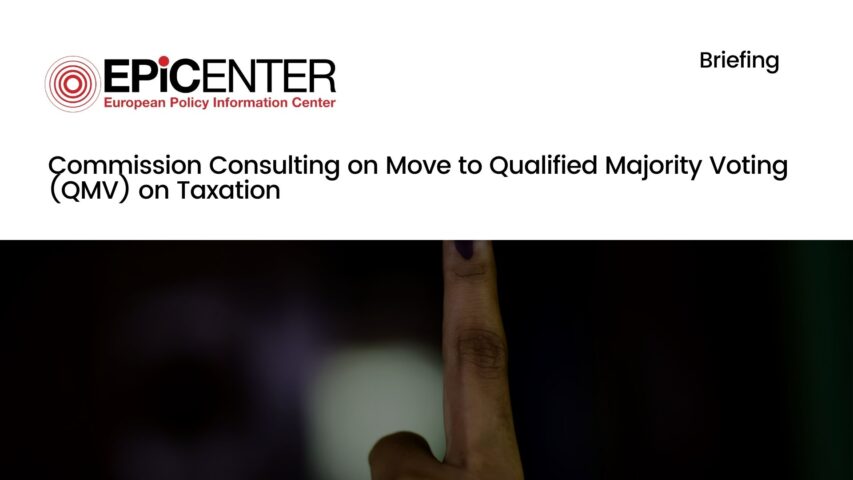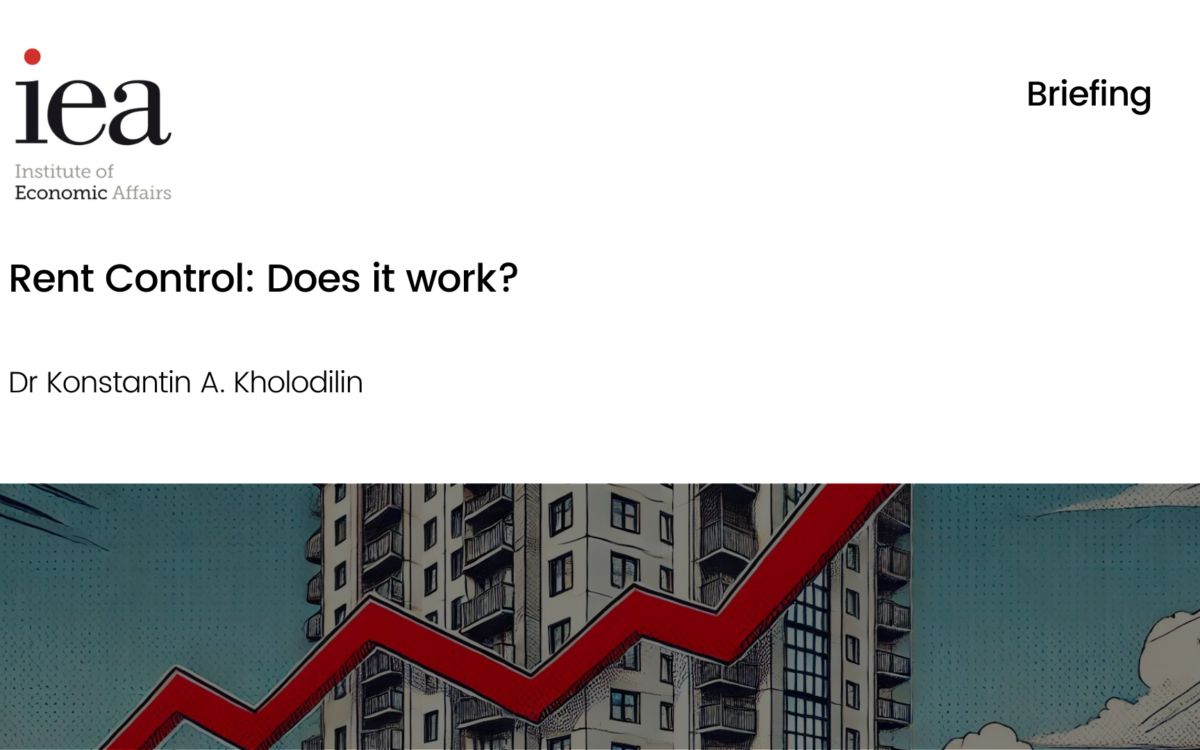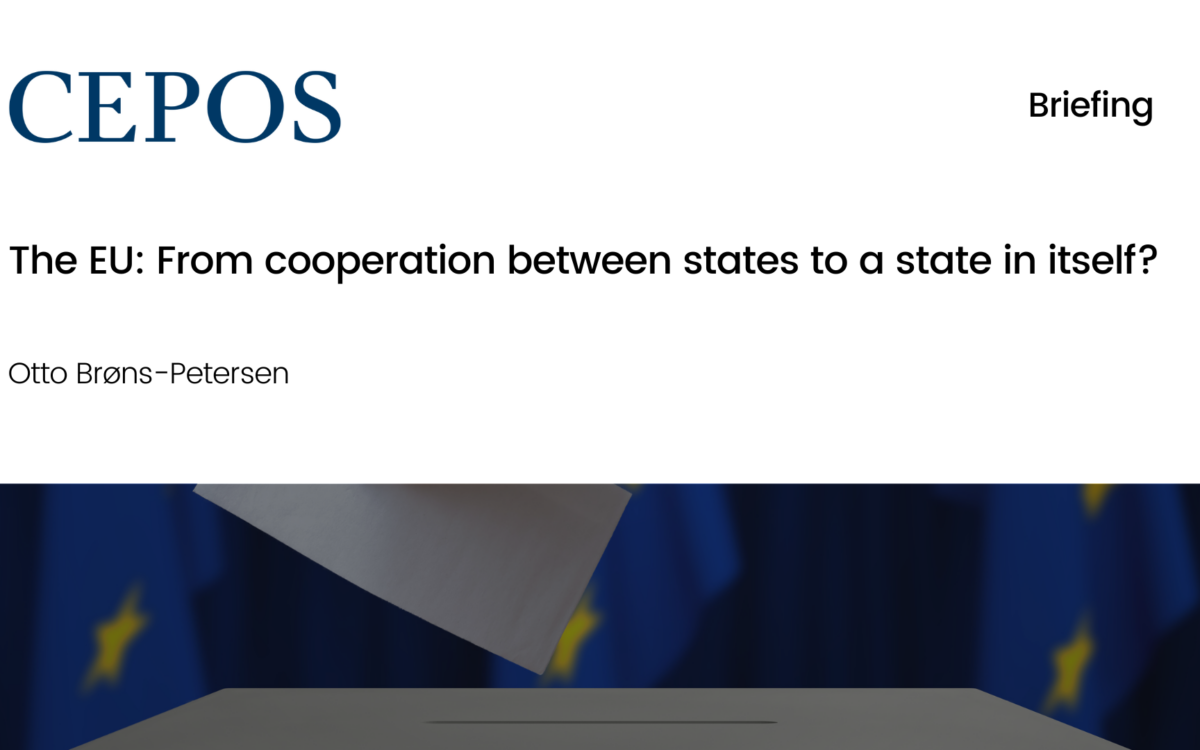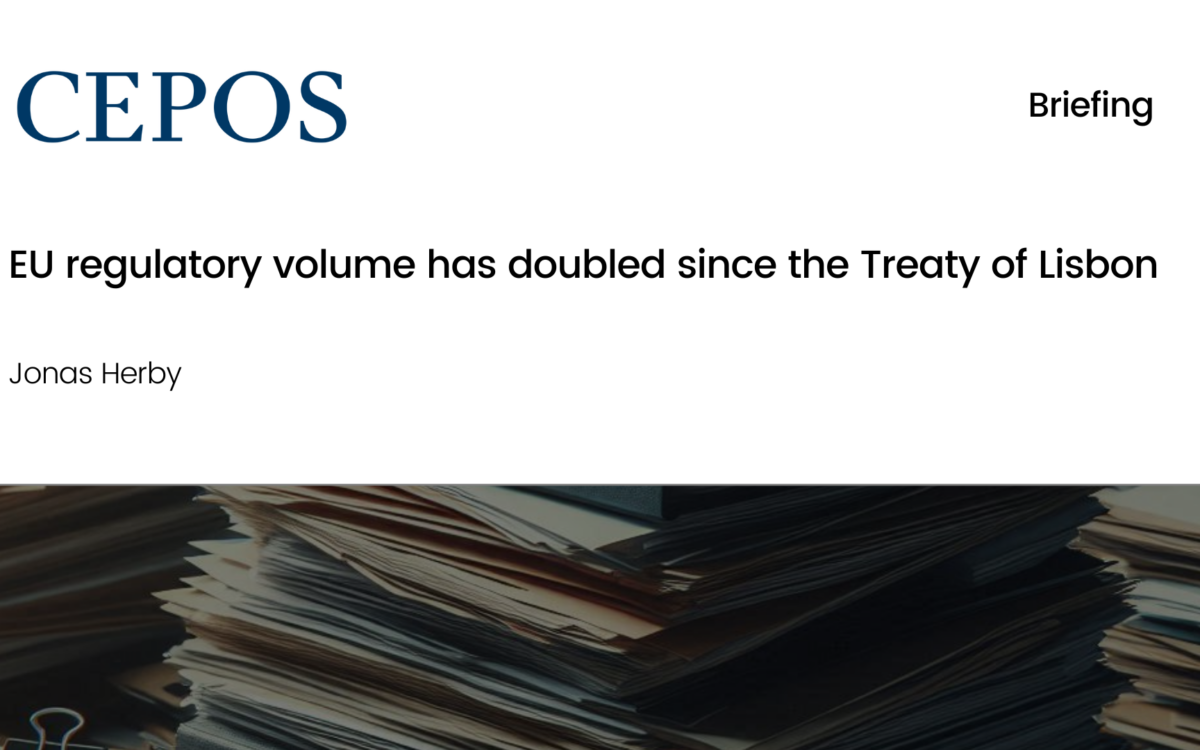Commission Consulting on Move to Qualified Majority Voting (QMV) on Taxation

Commission Consulting on Move to Qualified Majority Voting (QMV) on Taxation
January 2019
On 20th December, the European Commission launched a (relatively brief) consultation on moving from unanimity to qualified majority voting (QMV) in the Council on certain tax issues. The public consultation closes on the 17th January, with “indicative planning” to be carried out this quarter.
This development is seen as being likely to lead to further tax harmonisation within the EU, and would make it easier to increase taxes and reduce tax competition. To understand the impact this would have on taxation among EU countries, it is important to understand what this means in terms of how decisions are made in the EU, including the role of the Council and the replacement of the national veto there with QMV.
Download or share this publication
View the PDF
EPICENTER publications and contributions from our member think tanks are designed to promote the discussion of economic issues and the role of markets in solving economic and social problems. As with all EPICENTER publications, the views expressed here are those of the author and not EPICENTER or its member think tanks (which have no corporate view).



